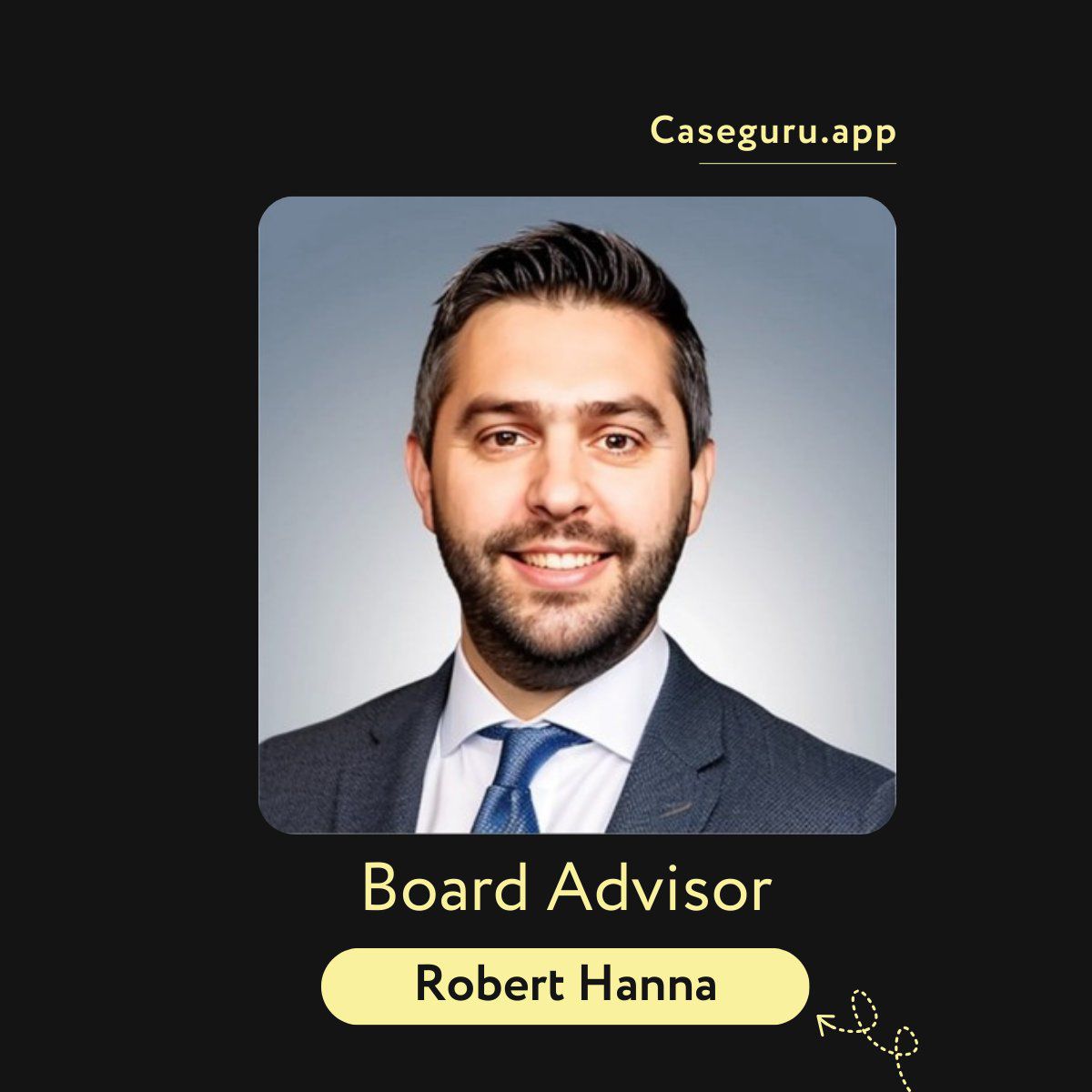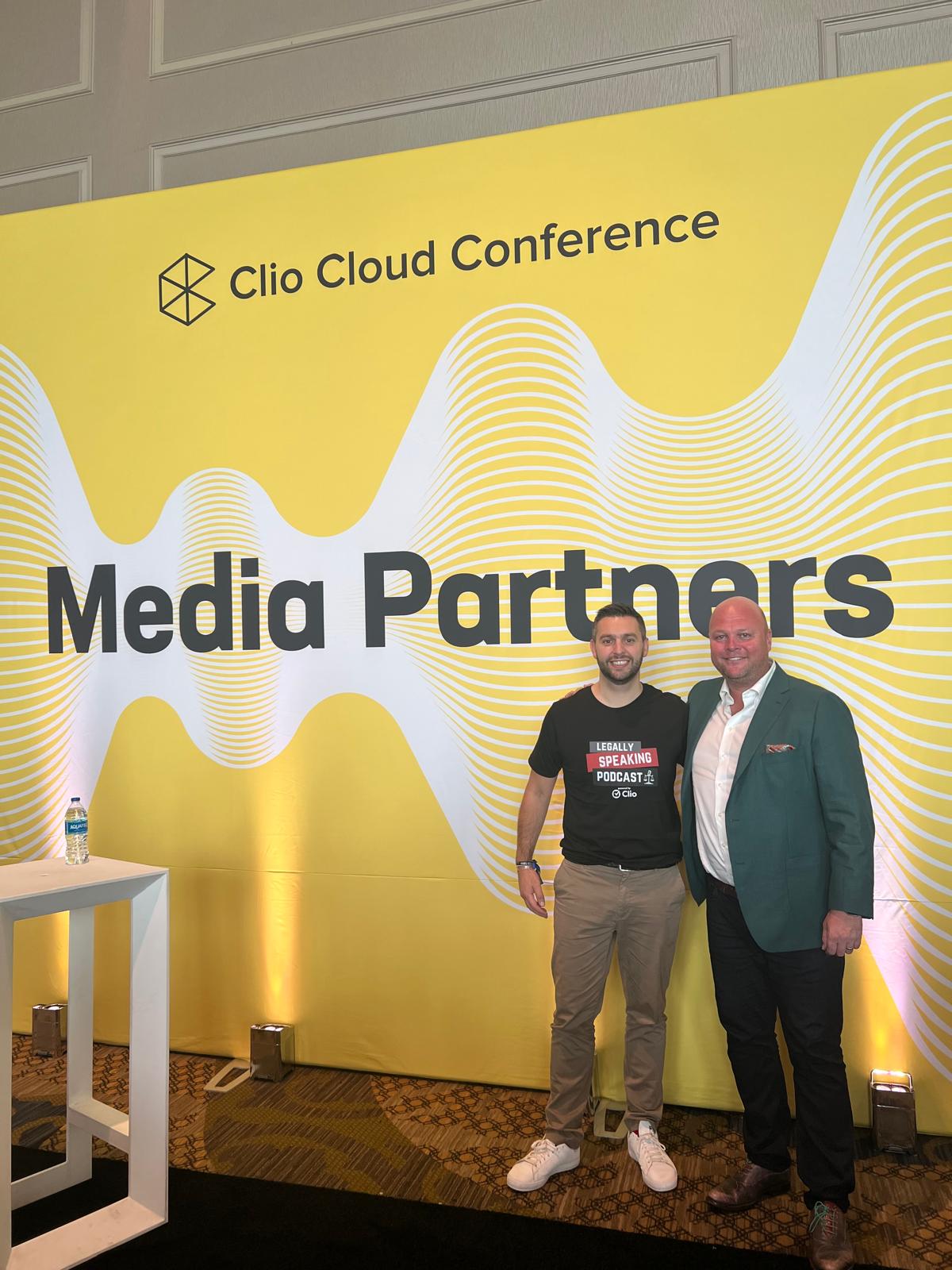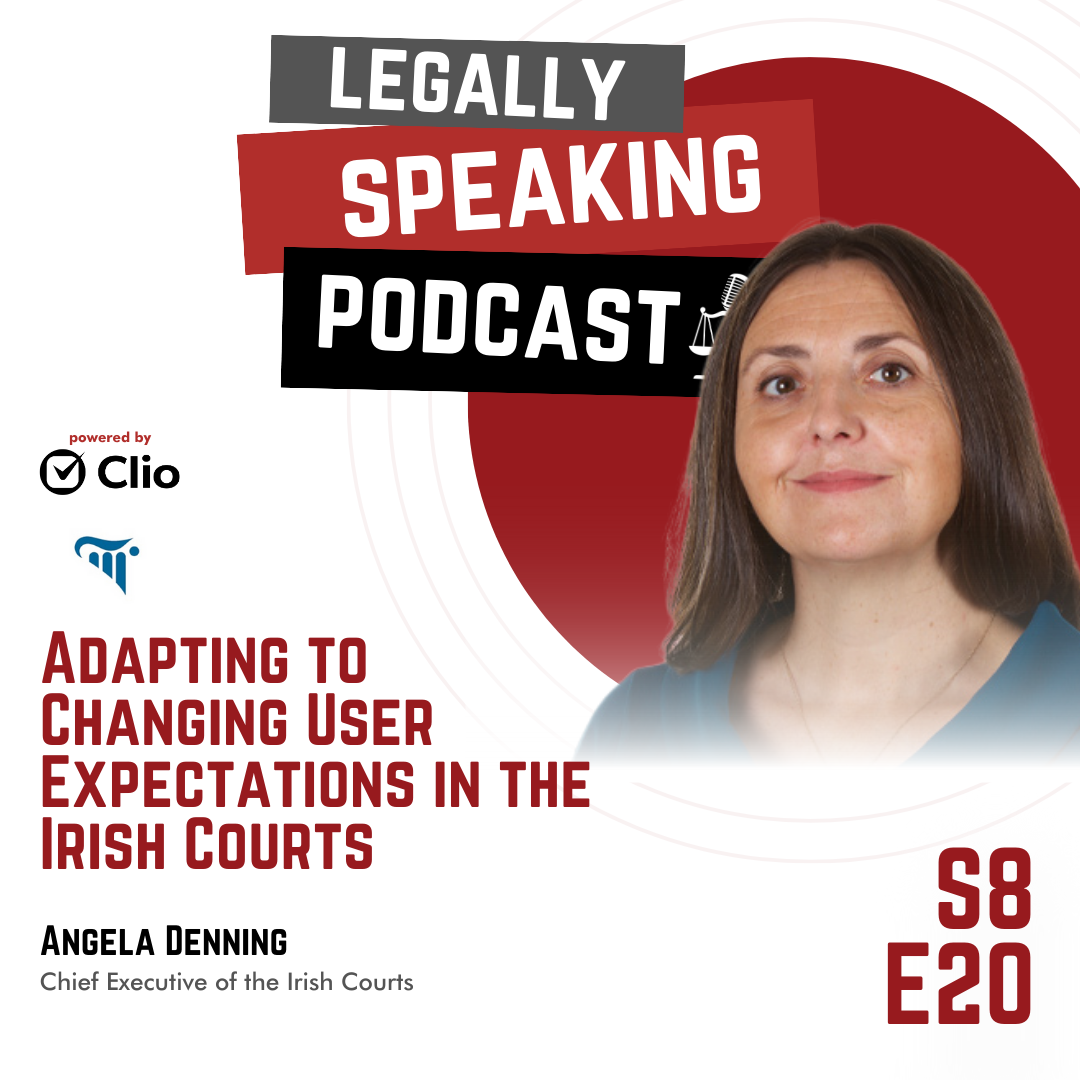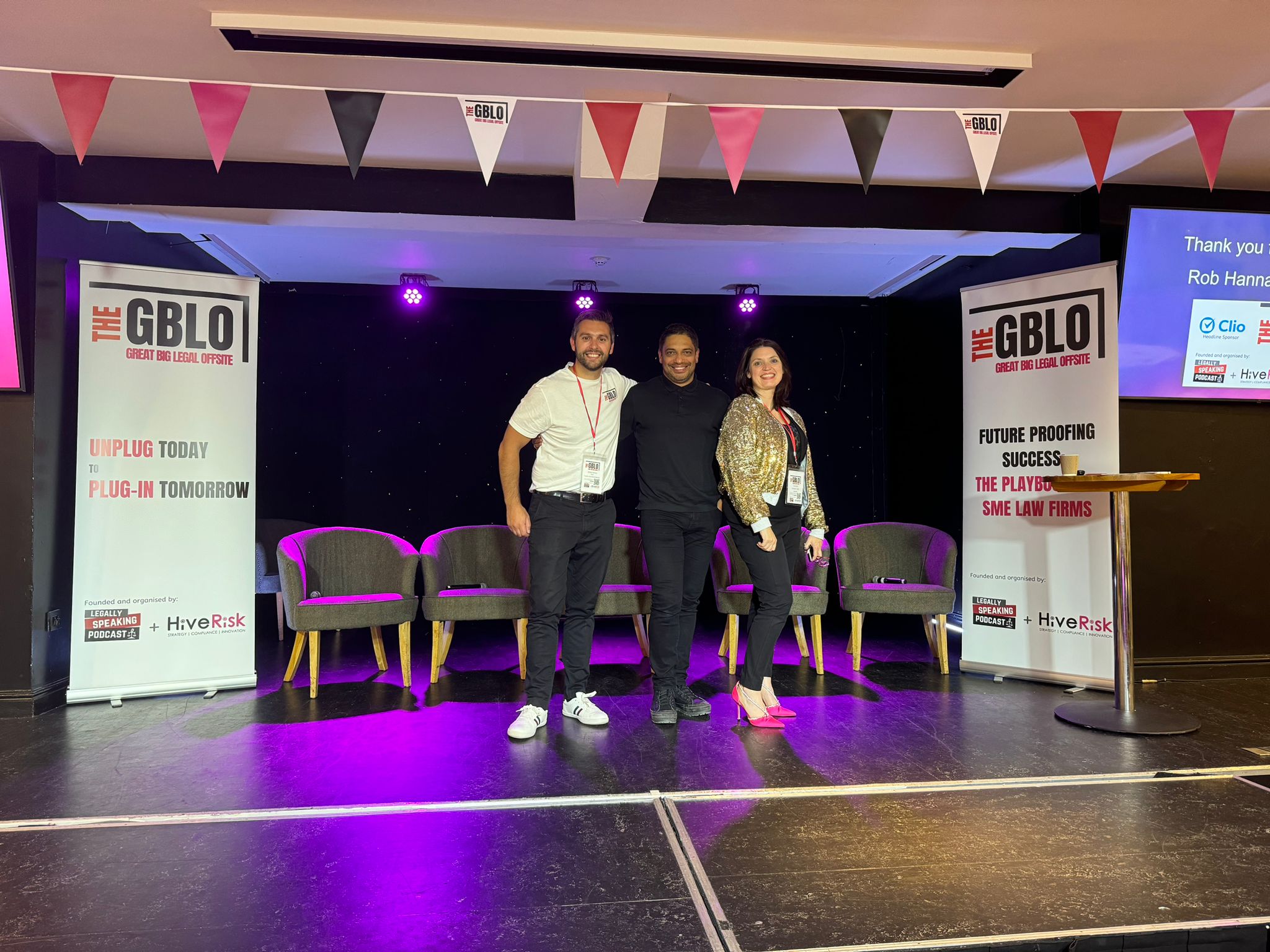
Our Host has joined the Advisory Board of Caseguru!
Congratulations to Our Host, Robert Hanna, on joining the Advisory Board of Caseguru!🌟 Finding a lawyer

In the ‘Fertility in the Workplace’ Miniseries, featuring Natalie Sutherland and Somaya Ouazzani, we will delve into how fertility in the workplace can be addressed more openly and how law firms can do a better job at acknowledging the challenges faced around fertility. The series looks into tackling fertility issues as a lawyer, in addition to family planning and becoming parents.
Natalie Sutherland is a Partner at Burgess Mee, a Family Law Firm and their first fertility officer. Natalie has experience handling surrogacy matters, based in the UK and internationally. She deals with surrogacy, assisted reproduction law and donor conception. Natalie advises clients on co-parenting as well as known donor agreements. Recently, she has joined the Board of Trustees of Progress Educational Trust, a charity advancing public understanding about human genetics, embryology and stem cell research.
Somaya Ouazzani is the CEO and Founder of Mimoza Fleur, a boutique executive search firm, in the legal sector. Somaya was previously a family and divorce lawyer, at Kingsley Napley, and Russell-Cooke LLP. Somaya also worked as a Senior Consultant, specialising in legal recruitment with Magic Circle and US law firms. Whilst working with senior female lawyers, Somaya gained a unique perspective of how professional women view planning family. Also, how firms are beginning to enhance their health packages to include fertility treatments.
In the first minisode of the series, Rob, Natalie and Somaya discuss the following:
00:06 Robert Hanna:
Welcome to the Legally Speaking Podcast. I’m your host Rob Hanna. I’m delighted to bring you all the Fertility in the Workplace miniseries featuring Natalie Sutherland and Somaya Ouazzani. Natalie is a partner at Burgess Mee, a family law firm and their first fertility officer. Natalie has experience handling surrogacy matters based in the UK and internationally. She deals with surrogacy, assisted reproduction law and donor conception. Natalie advises clients on co-parenting as well as known donor agreements. Recently, she’s joined the Board of Trustees of Progress Educational Trust, a charity advancing public understanding about human genetics, embryology and stem cell research. Somaya is the CEO and Founder of Mimoza Fleur, a boutique executive search firm in the legal sector. Somaya was previously a family and divorce lawyer at Kingsley Napley and Russell-Cooke LLP. Somaya also worked as a Senior Consultant specializing in legal recruitment with Magic Circle and US law firms. Whilst working with senior female lawyers, Somaya gained a unique perspective on how professional women view family planning. Also, how law firms are beginning to enhance their health packages to include fertility treatments. The miniseries will delve into how fertility in the workplace can be addressed more openly, and how law firms can do a better job at acknowledging the challenges based around fertility. The series looks into tackling fertility issues as a lawyer, in addition to family planning and becoming parents. So, in today’s minisode, we’re going to discuss why it is so important for all of us to actually acknowledge this issue in the first place. So Natalie and Somaya, it’d be great to understand more about how you both met and how you became working together to raise awareness on fertility in the workplace. So tell us a little bit about your stories and how we got here today. Natalie, would you like to answer first?
02:12 Natalie Sutherland:
No problem. So I think it was last summer, and Somaya had written an article that she shared on LinkedIn. It was behind a paywall. So I was very cheeky. And I emailed her to say, can you send, can you send that to me, because it was about fertility benefits in the workplace. And it’s something that really, really works with my specialism as well with, with fertility. So I wanted to know, I wanted to read what she’d written for a start. And it was about these fertility benefits being introduced in these big law firms. I think it was Cooley and Clifford Chance. And how obviously, that’s a really good thing. So that it’s acknowledging the issue. But for me, I was also thinking, well, I don’t think that is the answer necessarily. Because if you are introducing things like egg freezing, for example, you are potentially putting off your baby making for later, for career reasons. And it’s absolutely valid to do that. But there also needs to be this acknowledgment that if you’re having children later in life, it’s perhaps going to be more difficult. So for me, I was like, well, actually, what would be better is if there was law firms where there was a completely open culture, for people to be able to start their families, whenever, they were ready themselves. And for that, to be fully supported in the workplace, so that there wasn’t this feeling of, I need to put it off until I get to a certain stage in my career. I need to have got, you know, just lots of things ready before you’re ready. If you’re ready to have children now, why not have them now? So, so yeah, so, so we were talking about that. So I sent Somaya, an email to say how great her article was. And I was like, you know, I think we need to be doing more about this. Because with the pandemic, there was a lot of talk about wellness in the profession. And everybody started talking, and everyone’s really acknowledging it. And I was like, well, this is really, really good. It’s really good that everybody’s acknowledging that wellness is really, really important. And I was like, well, fertility issues is also really, really important. So, so that’s when I came to Somaya and said, what can we do about this? And then she suggested an event. And I’m sure Somaya will tell us about that.
04:24 Robert Hanna:
Absolutely. And thanks so much for sharing that. And Somaya, did you want to tell us a little about your story first, and then we’ll we’ll jump in.
04:32 Somaya Ouazzani:
Sure. So I where to start. So in brief, I what precipitated actually all of this was working at very senior level in the market, predominantly with partners and actually wanting to put a little bit of a microscope on working with women. So what started on more of a sort of diversity and inclusion initiative and trying to really hone in on that meant that actually I was constantly speaking to senior females who were whether it was sort of subtly telling me or explicitly telling me that fertility was a really big thing in their life at a certain stage of their career. And having had my own difficulty having suffered an ectopic pregnancy in 2014, at work, which resulted in emergency surgery, it was all very traumatic. And actually, at that point, that was what really was the impetus for me to sort of stop, recalibrate, and the right thing for me was to leave law. But I was constantly speaking to women that were having, you know, clandestine fertility treatment that we’re going to, you know, rushing between an egg retrieval, and then rushing to a meeting or an egg retrieval and then flying to the airport, or, you know, an egg transfer, and then going straight into a massive pitch in front of one of the world’s super majors. Or it was, you know, I had one candidate that had a DNC in the morning, and then went to an interview with, you know, six, six members of a management committee in the afternoon. And, that that wasn’t about sort of me and those individuals sort of pushing more than we should have been, it was about actually, these individuals feeling fundamentally uncomfortable to say, look, I need to be able to tell these people, this these organizations, what’s going on in my life, because without doing that, I can’t bring my authentic self to work. And what you were finding is that it was just layers and layers and layers of pressure. And you have these people that were coming to the, they were just shrouded in fear all of the time, because they were very fearful and terrified about actually how their fertility journey was going to end. And obviously, you know, we know that fear-based thinking produces fear-based results. So it was just compounding fertility problems they were having. And equally, they were having a whole host of fear and shaming and guilt at work. Their concern was that the moment somebody finds out that actually a big part of their life at the moment is trying to conceive a child or a second child or third, whatever it may be, in some way, they would be prejudiced professionally. And so it was constantly a conversation with senior female candidates that were saying to me, my personal life is, is colliding with my professional life. Hence why, it, you know, the acknowledgement of the issue is born. And so I, I started collating anonymous data with the consent of lots and lots of the women I was working with, to see where the patterns were emerging. Was it a certain level of PQE? Was it a certain type of firm? Was it a certain sector of the law, and actually, there was no sort of obvious pattern. The only thing that was quite clear is that it was generally speaking beyond a certain level of PQE. And actually, the other pattern is that you are dealing with a certain profile of individual that is women who are typically type A, very high performing in high pressure environments that don’t really know how to receive help. They don’t really know how to say, look, I’m really struggling, that have their perfectionist saboteur on their shoulder all of the time, you know, they have to deliver an absolutely exemplary piece of work or a piece of drafting. At the same time, they know, need to be ready for an egg retrieval and you know, attend that and show up like a boss. And it was just all incredibly unrealistic.
08:18 Robert Hanna:
Yeah. And again, thank you so much for highlighting that because there’s so many important certain pieces to to that, and Natalie I want to come back to to you because Somaya was, was touching on a lot of this. But you know, why do you think it’s significant to address fertility in the workplace?
08:34 Natalie Sutherland:
Well, we talked about whether or not this was a woman’s issue, and we don’t think it is. We think that this effects both men and women, but the women are the ones who have to carry the pregnancy, the women are the ones have to go through the IVF. So it’s just more difficult for us. And then when you add that to all of the other pressures that you have, as a working, working woman, it becomes, just it’s just very difficult. So, so that’s why we were talking about having this discussion and trying to open up the culture because when people share their stories, it really impacts and people can understand. And when you when you have a baby loss, for example, as I did, when you share that, all of a sudden, everybody tells you what I have as well, I have as well. So you don’t realize that because we don’t talk about these things. And of course, they are fundamentally private. Nobody has to, nobody saying that you have to share all of this because you could be a very private person. But for those people who, who want the help or need the help, what, what would be helpful for women generally, I think, is to have that working culture whereby starting a family and whether that’s easy or difficult, is supported and acknowledged as something that’s happening because as Somaya said, it being secret and having keeping it keeping your private life very separate from your working life, you can only do that up to a point, at some point, they are going to collide as Somaya said. And what you don’t want is for both of them to be negatively impacted. Going through fertility treatments is incredibly stressful. And these hard working women want to do well in both their job and obviously want to achieve pregnancy. So, so creating a culture whereby more women are talking about their, their stories, and we’re seeing this fundamental shift, I really, I really believe that because we are seeing lots more law firms introducing these policies, they are acknowledging that this is going to be beneficial, that women should have this available to them. And it’s available, available to men as well. So.
10:47 Robert Hanna:
Yeah, and again, fabulous points and just want to stick with culture Somaya and come, come to you. Do you believe there is a culture of shaming women for starting to have children early on, and if so, why is this?
10:59 Somaya Ouazzani:
I think it’s a really good question. And it’s not an easy one to answer. But I, but I think coming from it simplistically, yes, but what that shaming looks like can mean different things for different people. And actually, sometimes it doesn’t necessarily come directly from an employer or a manager or a supervisor a head of team. You can sort of be shaming yourself or you can be, you can be made to feel like you’re being shamed by your colleagues. And I think that’s another reason why for us, it was so important to make sure we were acknowledging this issue in the workplace. Because my observation certainly were that actually it was becoming a sort of mini pandemic of its own. You know, I was just staggered by the number of women who were on this journey, or had been on this journey, and had never spoken up about it. And it’s not any, I think one of the reasons actually, it was quite, I think my perceptions of what these women were going through were heightened because I’d been through something similar myself, and perhaps had I not, it would have been much harder for me to open up the conversation with these women. And I might not necessarily have noticed the subtle cues that they were giving me. But I think that there needs to be a massive cultural shift on two fronts. I think, firstly, there needs, we need to move away from this sort of unspoken rule that there is a certain point in your career where you do not have children. And you shouldn’t be thinking about that until a certain stage, level, promotion, whatever that might be. And I think that there needs to be a culture where women are encouraged to receive help and support from firms, colleagues, etc. Because it’s only then that, that culture of you know, any kind of fertility chatters, taboo, you know, any kind of last talk is going to put you on your firm’s range or someone that’s wanting to, you know, have a family that might not be as committed to the job, etc. It’s only then that actually we can change the dial on that.
12:58 Robert Hanna:
Thank you. Yeah. And again, I think you’ve made so many valuable points that, you know, we can all be doing a little bit more on and I guess coming to you, Natalie on that, how can lawyers support clients who are going through fertility issues?
13:12 Natalie Sutherland:
Support their clients? Well, so for me, I have a specialist fertility and surrogacy practice. So I often come across clients who have their own infertility journeys, and having that empathy and understanding, I think, also really helps to acknowledge where they’ve come from, in terms of I mean, we say the word journey a lot, but it really is a journey. There’s like, there’s really no other word for it, where your starting wanting to have a child and, and you have to travel, that, that road to get there. And often it is difficult. I have a specialist facility in surrogacy law practice. So I actually have many clients who have, who are trying to build their families from a position of infertility. So for me, having had my own journey, I think it helps in terms of that empathy and understanding, that you can, you can understand what they’re going through, and, and the system and that way really.
14:16 Robert Hanna:
Yeah, no, I couldn’t agree more about empathy. And, you know, I just want to jump to you finally, Somaya before we wrap up, and I know you were talking a lot about allowing people to bring their authentic self, but women, I guess, experiencing feelings of shame and guilt for starting families too late. Is there ever a right time to start family?
14:36 Somaya Ouazzani:
I think it’s a very good point. In my view, in my view, no. If you’re asking me from a professional perspective, I would be more inclined to answer that by, by saying that I don’t think it’s ever right to deliberately delay your family planning for career reasons. If you, I think an individual is feeling compelled to do that, although they are or as if they are in an environment which requires that, then they probably need to sit down and think carefully about whether or not that, that environment is aligned with what they want to achieve professionally and personally.
15:09 Robert Hanna:
Yeah, no and really well said and that brings to the close, the first minisode that we have of this entire season where I think we have addressed you know, why we do need to acknowledge the issue. But thank you so much, Natalie, and Somaya. I look forward to welcome you back next week. We’re gonna be talking about how can law firms do better but from all of us on the show for now, over and out. This week’s review comes James Moulton, five stars, Robert and the team were absolutely amazing to work with and really professional, can’t wait to work with them all together again soon. Thank you so much for your very kind words, James. It was an absolute pleasure working with you too and from all of us on the Legally Speaking Podcast. We appreciate you.
You may also tune in on Google Podcasts, Apple Podcasts, Spotify, or wherever you get your podcasts!
Give us a follow on X, Instagram, LinkedIn, TikTok and Youtube.
Finally, support us with BuyMeACoffee.
🎙 Don’t forget to join our Legally Speaking Club Community where we connect with like-minded people, share resources, and continue the conversation from this episode.
Sponsored by Clio – the #1 legal software for clients, cases, billing and more!
💻 www.legallyspeakingpodcast.com
📧 info@legallyspeakingpodcast.com
Disclaimer: All episodes are recorded at certain moments in time and reflect those moments only.

Congratulations to Our Host, Robert Hanna, on joining the Advisory Board of Caseguru!🌟 Finding a lawyer

Congratulations to Our Sponsor, Clio, on announcing their Series F funding value, that values Clio at

Join us as we take a deep dive into the technical revolution happening in the Irish
Average Range of Salaries *These are paid at the £/$ exchange rate and so are prone

Event Overview:In 2024, the Legally Speaking Podcast and HiveRisk founded a unique law firm leadership strategy
I’m thrilled to share the highlights from our exclusive “LegalTechTalk Uncovered” miniseries. Join me as I

*DISCLAIMER* All episodes are recorded at certain moments in time and reflect those moments only. The podcast does not support or associate itself with any inappropriate behaviour or actions that may have occurred after recording.
Website by Virtual Insanity LLC